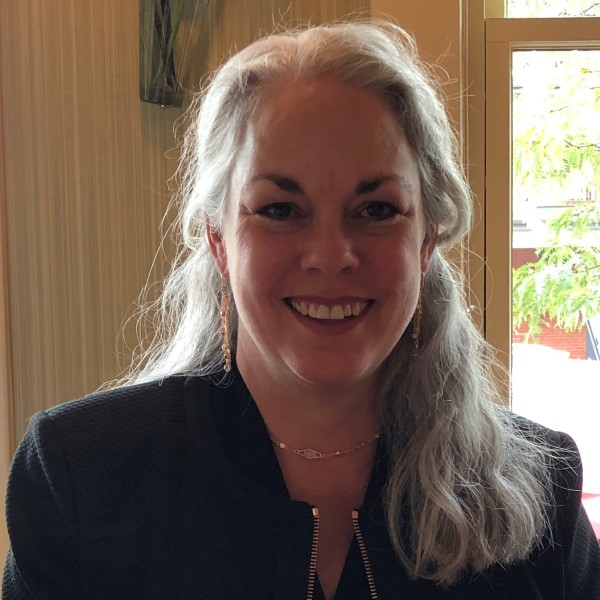
EB5 Investors Magazine is pleased to announce the Top 5 Economists. To be eligible, distinguished economists needed to draft economic impact studies for the EB-5 industry.
For more information or to contact any of these professionals, we invite you to view their listings at www.EB5Investors.com/directories.
KIM ATTEBERRY
Vermilion Consulting
 Kimberly Atteberry is the president of Vermilion Consulting LLC. Vermilion helps varied organizations leverage the benefits of the EB-5 Immigrant Investor Program. Vermilion Consulting provides expert advice on project feasibility, EB-5 compliant business plans, job creation analyses, and targeted employment area analyses. Prior to Vermilion, Atteberry was the chief economist of U.S. Citizenship and Immigration Services. In 2000 and 2002, she taught economics and marketing at the United States Air Force Academy as one of a select group of civilian instructors.
Kimberly Atteberry is the president of Vermilion Consulting LLC. Vermilion helps varied organizations leverage the benefits of the EB-5 Immigrant Investor Program. Vermilion Consulting provides expert advice on project feasibility, EB-5 compliant business plans, job creation analyses, and targeted employment area analyses. Prior to Vermilion, Atteberry was the chief economist of U.S. Citizenship and Immigration Services. In 2000 and 2002, she taught economics and marketing at the United States Air Force Academy as one of a select group of civilian instructors.
What do you think about the EB-5 Reform and Integrity Act of 2022?
I’m relieved that Congress has finally authorized the regional center program for an extended period. Although some of the language in the bill could have been worded more clearly, I believe we now have a set of workable rules for our industry. My hope at this point is that USCIS steps up and provides clarification with a new, well-considered regulation, and that the adjudication process begins to move again. After that, I hope Congress can work out the visa situation and put the EB-5 program on the same footing as the other immigration programs.
What new types of projects and trends are you seeing in the EB-5 industry?
Since the passage of the Act, many clients have approached us to help them apply for new regional center geographies that are considerably larger than what they had before. This makes sense on two levels. First, the larger geographies allow the regional centers to capture rural areas they might not have considered important in the past. The new, legislative emphasis on rural projects is certain to encourage this approach across the industry. Second, with the creation of the “integrity fund” and its large annual fee per regional center, it’s wise to request as much geography as possible.
JEFFREY CARR
Economic & Policy Resources Inc.
 Jeffrey Carr is president and senior economist of Economic & Policy Resources, Inc. (EPR). EPR professionals have worked extensively in the EB-5 industry as economists and business plan writers for over 20 years. In addition to EPR’s national economics and business plan writing practice, Carr has lectured on the EB-5 program throughout the U.S. and internationally and has completed more than 325 assignments under the program including impact studies, business plans, TEA analysis, and regional center business plans. Carr also has served on various committees pertaining to key EB-5 issues as part of the IIUSA Public Policy Committee since 2013.
Jeffrey Carr is president and senior economist of Economic & Policy Resources, Inc. (EPR). EPR professionals have worked extensively in the EB-5 industry as economists and business plan writers for over 20 years. In addition to EPR’s national economics and business plan writing practice, Carr has lectured on the EB-5 program throughout the U.S. and internationally and has completed more than 325 assignments under the program including impact studies, business plans, TEA analysis, and regional center business plans. Carr also has served on various committees pertaining to key EB-5 issues as part of the IIUSA Public Policy Committee since 2013.
What do you think about the EB-5 Reform and Integrity Act of 2022?
All EB-5 professionals were relieved to see the passage of the RIA. The re-authorization of the regional center program and the updates to the rules and regulations were needed. Now the industry has some much-needed long term stability for the regional center program. Most see the integrity measures as being largely workable, especially with the additional clarity on the regional center re-certification issue with the recent Behring lawsuit settlement. There were a few program changes that were “negatives” (such as the end of multi-investor direct EB-5 projects) and uncertainties remain. However, uncertainties are not anything new to seasoned EB-5 practitioners.
What new types of projects and trends are you seeing in the EB-5 industry?
We have recently seen a lot of interest in infrastructure projects and projects that are located in program-referred rural areas. We have also seen more interest understanding which projects would qualify as high unemployment rate TEA projects under the new program rules. However, we also have observed some efforts “to game” the new TEA rules. At best, this will reflect poorly on those practitioners. At worst, that gaming will put some EB-5 investors potentially “at risk” for obtaining their job creation-based immigration benefits. We are optimistic that these matters will be worked out, and EB-5 will prosper in the future.
DAVE EVANS
Evans, Carroll & Associates
 Dave Evans joined Evans, Carroll & Associates (ECA) in 2012 and has led its EB-5 economic impact practice since 2016. The firm specializes in economic analyses for EB-5 programs and the development of custom econometric models for individual industries and companies. ECA has successfully submitted hundreds of EB-5 economic impact reports that have been approved by USCIS. Prior to joining ECA, Evans served as the chief scoring officer for Capital One Financial. He started his career in economic consulting, most notably at PriceWaterhouseCoopers. Evans received his degree in economics from Brown University in 1989.
Dave Evans joined Evans, Carroll & Associates (ECA) in 2012 and has led its EB-5 economic impact practice since 2016. The firm specializes in economic analyses for EB-5 programs and the development of custom econometric models for individual industries and companies. ECA has successfully submitted hundreds of EB-5 economic impact reports that have been approved by USCIS. Prior to joining ECA, Evans served as the chief scoring officer for Capital One Financial. He started his career in economic consulting, most notably at PriceWaterhouseCoopers. Evans received his degree in economics from Brown University in 1989.
What do you think about the EB-5 Reform and Integrity Act of 2022?
The Reform and Integrity Act was quite reasonable; Ultimately, RIA should have relatively little impact on economic impact modeling. For example, under RIA, only 90% of jobs can be indirect or induced; in our experience, this was almost always the case anyhow. On a positive note, tenant occupancy jobs can once again be included, provided the jobs are not existing jobs being relocated.
What new types of projects and trends are you seeing in the EB-5 industry?
The focus is on completion of existing projects and ensuring they adhere to the new regulations in the EB-5 Reform and Integrity Act. There has been more interest recently in exploring projects located in rural areas, as projects in rural areas will now receive higher priority processing. Interestingly, areas that may seem rural do not always qualify as such – they have to be outside of a metropolitan statistical area (MSA) and not in a city or town with a population of 20,000 or more.
ISMAEL FERNANDEZ
Greengate Consulting
 Ismael Fernández, originally from Madrid, Spain, is the founder and president of Greengate Consulting, an Atlanta-based consultancy firm. A published author in the field of technology valuation with a PhD and MBA from Georgia Institute of Technology, Fernández extended his career into start-up consulting, as well as real estate planning and financing given his experience in financial and economic modeling and forecasting. Prior to funding Greengate, Fernández was a senior manager at GE Power. Since 2010, he has assisted hundreds of clients getting established in the U.S. and is also the executive vice president of World Trade Center Atlanta.
Ismael Fernández, originally from Madrid, Spain, is the founder and president of Greengate Consulting, an Atlanta-based consultancy firm. A published author in the field of technology valuation with a PhD and MBA from Georgia Institute of Technology, Fernández extended his career into start-up consulting, as well as real estate planning and financing given his experience in financial and economic modeling and forecasting. Prior to funding Greengate, Fernández was a senior manager at GE Power. Since 2010, he has assisted hundreds of clients getting established in the U.S. and is also the executive vice president of World Trade Center Atlanta.
What do you think about the EB-5 Reform and Integrity Act of 2022?
The only thing I like about this bill is that it passed, and as a consequence we should have some stability for the next five years. The worst part is that everything is up in the air due to differences in interpretations of the law by the USCIS. Some portions of the bill are favorable, like concurrent filing of I-526 and I-485 to adjust the status in the U.S. Others were expected, like the TEA rules and higher investment amounts, but others caused some significant drawbacks to the program, like limiting the number of investors in an EB-5 direct offering to just one investor.
What new types of projects and trends are you seeing in the EB-5 industry?
It is hard to predict how efficient the EB-5 regional center market will be overall with the lack of guidance and significant uncertainty caused by the USCIS’ interpretation of the new rules. The good news is that there are plenty of options within this realm. Many business opportunities can be exploited; from franchise models to manufacturing, EB-5 direct projects can cover a lot of industries without giving up on economic return and seizing the potentially faster processing times caused by the existing chaos in the EB-5 regional center program.
MICHAEL KESTER
Impact DataSource
 Michael Kester is partner and lead EB-5 economist with Impact DataSource. Established in 1993, Impact DataSource, a Texas-based firm, specializes in high-quality economic and fiscal impact research services. The firm began offering specialized EB-5 services in 2010 and has become a leading resource for the industry. Kester leads the firm’s specialized EB-5 economics team, which offers EB-5 consulting services, analyses and deliverables that reflect the evolving needs of EB-5 clients and ever-changing requirements of USCIS. The EB-5 team has completed more than 500 comprehensive EB-5 economic studies and assisted clients in obtaining more than a thousand TEA certifications.
Michael Kester is partner and lead EB-5 economist with Impact DataSource. Established in 1993, Impact DataSource, a Texas-based firm, specializes in high-quality economic and fiscal impact research services. The firm began offering specialized EB-5 services in 2010 and has become a leading resource for the industry. Kester leads the firm’s specialized EB-5 economics team, which offers EB-5 consulting services, analyses and deliverables that reflect the evolving needs of EB-5 clients and ever-changing requirements of USCIS. The EB-5 team has completed more than 500 comprehensive EB-5 economic studies and assisted clients in obtaining more than a thousand TEA certifications.
What do you think about the EB-5 Reform and Integrity Act of 2022?
While not perfect, the EB-5 RIA of 2022 at least provides the EB-5 program with a long-term framework for stakeholders and investors to work with. It will be interesting to see how USCIS continues to interpret the new law, and how they will eventually adjudicate cases. The RIA appears to codify the TEA standards (directly adjacent census tract aggregation only) from the November 2019 regulations, however the language from the new law related to job creation is more up in the air. Hopefully, USCIS will provide clear guidance on these and other issues in a timely fashion.
What new types of projects and trends are you seeing in the EB-5 industry?
Since the EB-5 RIA of 2022 took effect, we are getting more inquiries related to rural projects due to the set-aside provisions. While some projects are moving forward quickly, many are taking a more cautious approach and are waiting to see how the ongoing court cases play out and also how USCIS further interprets and reacts to the new law. Regarding project types, we are continuing to still see many “run-of-the-mill” EB-5 projects (real estate, etc.) but with the increased focus on rural projects we are seeing more atypical projects, as well.
DISCLAIMER: The views expressed in this article are solely the views of the author and do not necessarily represent the views of the publisher, its employees. or its affiliates. The information found on this website is intended to be general information; it is not legal or financial advice. Specific legal or financial advice can only be given by a licensed professional with full knowledge of all the facts and circumstances of your particular situation. You should seek consultation with legal, immigration, and financial experts prior to participating in the EB-5 program Posting a question on this website does not create an attorney-client relationship. All questions you post will be available to the public; do not include confidential information in your question.







